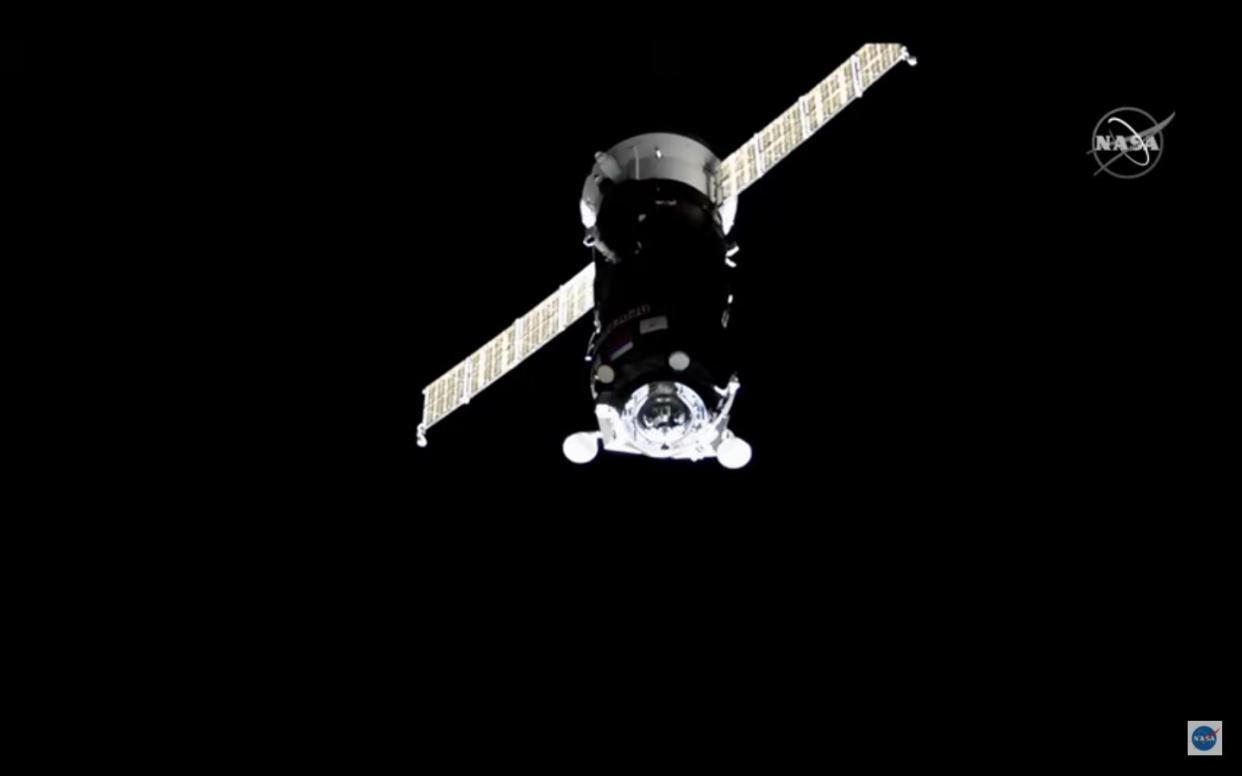Watch Russia launch cargo mission to space station early Thursday

Russia will launch a robotic cargo mission to the International Space Station early Thursday morning (Feb. 9), and you can watch the action live.
The robotic Progress 83 freighter is scheduled to lift off atop a Soyuz rocket from the Russia-run Baikonur Cosmodrome in Kazakhstan on Thursday at 1:15 a.m. EST (0615 GMT).
Watch the launch live here at Space.com, courtesy of NASA, or directly via the space agency. Coverage will begin at 1 a.m. EST (0600 GMT).
Related: How Russia's Progress spaceships work (infographic)

If all goes according to plan, Progress 83 — which is carrying about 3 tons of food and other supplies — will chase the International Space Station (ISS) for two days, eventually docking with the orbiting lab at 3:49 a.m. EST (0849 GMT) on Saturday (Feb. 11) for a roughly six-month stay.
You can watch the orbital meetup here on Space.com as well, beginning at 3 a.m. EST (0800 GMT) on Saturday.
Progress 83 will dock with the rear port of the Zvezda module, on the Russian side of the station. That port was vacated on Monday night (Feb. 6) by the Progress 81 spacecraft, which had arrived at the ISS in June 2022.
Related stories:
— Soyuz rocket: Russia's venerable booster
— The Cygnus spacecraft: Northrop Grumman's cargo ship
— SpaceX's Dragon: First private spacecraft to reach the space station
The Progress is one of three currently operational robotic ISS resupply vessels, along with SpaceX's Dragon capsule and Cygnus, which is built by Northrop Grumman.
Cygnus and Progress are designed to burn up in Earth's atmosphere when their time in orbit is done, whereas Dragon is reusable; the SpaceX capsule makes ocean splashdowns and can fly again.
Another Russian vehicle will launch toward the ISS from Baikonur later this month, if all goes according to plan: A Soyuz spacecraft is scheduled to lift off on the night of Feb. 19.
The Soyuz is a crew-carrying vehicle, but this one will launch without anyone on board; it will replace another Soyuz that was damaged by an apparent micrometeoroid strike in mid-December. That other Soyuz has been declared unfit to carry astronauts back to Earth, unless an emergency evacuation of the station is required.
Mike Wall is the author of "Out There" (Grand Central Publishing, 2018; illustrated by Karl Tate), a book about the search for alien life. Follow him on Twitter @michaeldwall. Follow us on Twitter @Spacedotcom or on Facebook.

